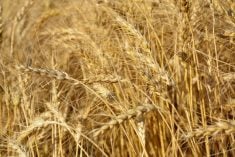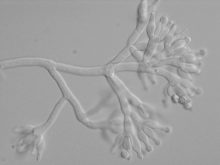Wheat is a major source of calories, carbohydrates and protein worldwide, and its distinctive gluten proteins are what gives bread and pasta dough texture and elasticity.
But it also can cause autoimmune reactions such as celiac disease, which is growing in prevalence worldwide.
Researchers at the University of California, Davis, have deleted a cluster of genes in wheat that generates gluten proteins that can trigger immune reactions without harming the breadmaking quality of this globally nutritious crop.
Lead researcher Maria Rottersman said this won’t produce a celiac-safe form of wheat but represents a critical step forward in celiac disease research.
“The gluten proteins we eliminated are the ones that trigger the strongest response in people with celiac disease, and their elimination can reduce the risk of triggering the disease in people without celiac disease,” said wheat geneticist Jorge Dubcovsky, one of the researchers working with Rottersman.
Gluten is comprised of two classes of proteins — glutenins and gliadins — and deleting them all would lower the quality of bread. The research team used gamma radiation to target and delete alpha-gliadins, which can cause severe reactions in people with celiac disease. Removing alpha-gliadins can create a less allergenic wheat.
The team produced seeds from these edited varieties and tested the quality of the wheat and dough at the California Wheat Commission quality lab. Once the value of these breeding lines was established, they were deposited in the Germplasm Resources Information Network, or GRIN, operated by the Agricultural Research Service in the United States Department of Agriculture to make them widely available.
“The exciting thing that we found is that the quality of the flour produced by this wheat is actually, in some cases, improved,” Rottersman said. “Growers can not only grow it but can expect to have a higher quality product, which I think is a huge incentive for folks to widely adopt this variety. They can be planted in the same way that normal wheat is planted.”
The varieties are conventionally bred, with artisanal bakers, millers and farm-to-fork operations expressing interest in them.














